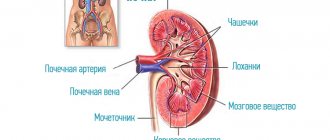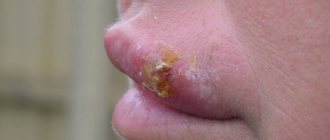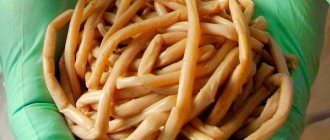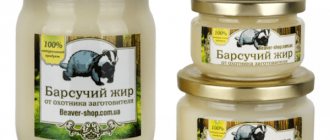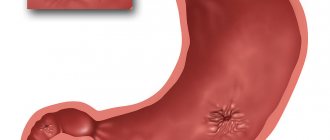This disease, accompanied by inflammation of the tonsils, brings a lot of unpleasant sensations. An excessively elevated temperature and a noticeable sore throat are only part of what a sick person has to endure. For successful healing, timely and accurate diagnosis is of fundamental importance, for which you need to consult a doctor. In addition to the prescribed medications, suitable folk remedies for sore throat will be useful. Before using them, you should definitely consult a doctor in order to avoid a negative reaction from the body and worsen the situation.
Features of the immune system in children
advises a medical pediatrician How to strengthen a child’s immunity - this is a question that worries every mother who is influenced by advertising from TV or the Internet, which frightens her every day that she and her baby simply need to purchase and use various medicines, vitamins, nutritional supplements, yoghurts, and other products that will instantly “strengthen” the child’s immunity. In this article we will look at how immune defense works in children, what affects it, and in which cases something needs to be done to “strengthen” it, and in which cases not.
Folk remedies for sore throat in children: cottage cheese
Young children require gentle therapeutic methods. When you need to heal a child from a sore throat, the effective remedy - a folk one, without the use of unnecessary chemicals - is a curd compress. To create it, lay out about a centimeter layer of cottage cheese (preferably homemade rather than store-bought) on a clean gauze lined with three layers. The top is covered with a similar number of gauze layers. Before using the fermented milk product in this recipe, it is imperative to slightly warm it up in a water bath to 27-30 degrees. After applying it to the throat and tying it with a warming bandage, leave it for a couple of hours, then remove it.
Children, immunity and colds
The vast majority of parents sincerely wish the best for their children and, above all, health. But the children still, as luck would have it, get sick all the time. And the most common illness among children is the common cold (ARI or ARVI), especially among those who attend a nursery or kindergarten. Such children can suffer up to 8-10 acute respiratory viral infections per year, and even more. Although colds, even frequent ones, rarely lead to serious complications, they certainly cause serious discomfort not only for the baby himself, but also for mom and dad, due to lack of sleep and forced absences from work or school. Since illnesses such as colds are so common in children before middle school age, there is no shortage of parents looking for ways to prevent high illnesses in children.
How to cure a sore throat with folk remedies: garlic effect
Such folk remedies are often used to treat sore throat in adults. They are also acceptable for young patients, but are not accepted by the children themselves, who usually find it difficult to tolerate the specific garlic aroma and taste. One of the recipes involves using a whole head of garlic: its cloves are crushed, poured with very warm boiled water, and combined with a pinch of soda. You must breathe over the resulting vapors of this mixture. From the product passed through a special press, a mixture for rinsing is created by adding liquid. An additional measure is to rub garlic cloves on your soles the night before going to bed.
Back Next
How many times do you get sick?
In reality, a child will suffer from colds quite often (normally up to 8-10 times a year until primary school age, and up to 4-5 times a year in secondary school). The high incidence is associated with the gradual development of the protective immune system and its successive “acquaintance” with various strains of viruses that cause colds. Only by “remembering” certain types of viruses, the immune system is able to effectively fight pathogens, preventing or mitigating the severity of the disease.
However, parents, sincerely wanting the best for their children, are constantly looking for means and ways to “strengthen the child’s immunity,” especially since advertising persistently suggests that this is really possible with the help of vitamins, nutritional supplements and “magic” yoghurts or drinks.
Be careful - mine!
Method one. We pick up a frog, but not the first one we come across. You need to choose an amphibian creature as large as possible. Take it in your hands and bring it close to your face. Now comes the most important part. Look closely into her eyes, much like a boa constrictor looks at a rabbit. And wait. The main thing is not to miss the moment. This is when the frog opens its mouth wide out of fear. At this moment you need to blow on it with all your strength.
But the treatment does not end there. Because you will still need to carry out a control check. To do this, release the frog onto the floor and let it jump. On the second, or maximum on the third jump, she should die. If this happens, it means that the treatment was successful: your disease moved into the frog and instantly killed it. If the frog does not die in time, but continues to jump safely around the room, the experiment was a failure. You will have to catch this amphibian creature and breathe on it again. And this procedure must be repeated until the frog finally dies.
They say that this is the surest remedy for sore throat. Even if a person could neither eat, nor drink, nor even speak, then after 8-10 minutes the disease completely passes and the patient can draw out arias at the highest notes.
The next way to fight a sore throat is also associated with a frog. True, a toad is better suited for this method. But not alive, but dead. Take a mortar, put a well-dried toad in it and thoroughly grind it into powder with a pestle. The toad crushed in this way should be brewed as tea, infused and drunk. A very good folk remedy. They say it helps some people.
One problem is that it’s very difficult to get frogs and toads these days. But lovers of witchcraft recipes should not yawn, but prepare in advance for the harsh Russian winter and dry the medicinal potion for future use in the summer. Well, if someone didn’t have time to do this, then they’ll have to quickly fly to France. There are no problems with frogs at any time of the year.
However, caution should be given to those who decide to use the frog method of treatment. After you manage to cure a sore throat with the help of amphibians, most likely you will have to treat warts, since the same healers claim that these nasty growths appear on people's skin precisely because of frogs. If you still can’t find the frogs, and the plane flying between Russia and France breaks down, there is another way to get rid of a sore throat. Take garlic, finely chop it, put it in an empty walnut shell and tie it between your index and thumb. You need to apply this device to the hand on which side the throat hurts the most. If you can’t find the shell, you can wrap the garlic in a cloth. However, according to healers, this method works worse than the shell method.
Advertised products to “boost immunity” in children
Over the years, a plethora of “immune booster” supplements, vitamins, and other “eat me” products have emerged. However, when scientists checked all the properties declared in the advertisement from the standpoint of evidence-based medicine, it turned out that almost all “immunostimulating” properties do not have statistically significant confirmation,
- large doses of vitamin C (1000 mg per dose) do not have a preventive or therapeutic effect for an already developed cold. Vitamin C strengthens the cell wall and prevents viruses from entering the cell upon contact, but if infection has already occurred, there will be no significant effect. And for prevention, the whole point is not in the amount of vitamin C, but in starting to take it in advance, a month or two before the season of illness. A “sick” single dose of vitamin C during the cold season will only lead to an allergic reaction to it.
- Taking vitamin D certainly helps, but only in cases of deficiency of this vitamin in the body. It is useless if there is no vitamin deficiency, and in “hyper doses” it is also harmful. It’s the same for most vitamins, the prescription gives an effect only against the background of their deficiency or clinical deficiency.
- Echinacea and homeopathic remedies (such as Oscillococcinnum) are not able to cure an already developed viral infection.
- Eating garlic has some beneficial effects on the prevention of acute respiratory infections, but there are not enough statistical data to prove this for sure.
- Taking zinc supplements can shorten the duration of a cold by one day, but cannot prevent the disease itself. In this case, zinc can cause nausea in a child, and if used uncontrolled in the form of a spray, loss of smell.
There are also many nutritional supplements and “superfoods” on the market that are advertised to boost the immune system in one way or another. Where did this term “superfoods” come from, and why are they needed? In some countries, due to the development of “refined” products, there is a shortage of daily intake of vitamins and microelements. At the same time, the doctor must first document such a deficiency, and only then determine the daily diet of certain fortified foods and supplements. Unfortunately, “More is Better” is just a marketing strategy. Of course, some foods are more nutritious or calorie-dense than others, but there is no food that you simply need to eat to protect yourself from a cold. Obviously, the body needs an adequate supply of nutrients to fight infections - but no more than can be obtained by eating a regular diet consisting of a variety of organic foods. In fact, of all the supplements and foods that provide any benefit to the immune system, probiotics are the best. These beneficial bacteria that live in the intestines and participate in biochemical reactions, synthesize vitamins and participate in the absorption of nutrients.
Getting good sleep and reducing stress can improve your immune system. But these are simply solutions for maintaining a healthy lifestyle and maintaining overall physical and mental health: adequate sleep and minimal stress can support the functioning of the immune system, but cannot stimulate it.
So what should parents do? How to “strengthen a child’s immunity” if supplements and vitamins are not able to do this? What if nothing needs to be “strengthened” at all? To answer this question, it is necessary to understand how immunity works in children.
Folk remedies for purulent sore throat in adults - various rinses
A similar folk remedy for purulent tonsillitis should be used more often. Compositions for this case must include a disinfecting component. Here are some ideas:
- a little freshly squeezed beet juice and a spoonful of 6 percent vinegar are dissolved in a glass of warm liquid;
- a teaspoon of peroxide for the same volume of water;
- Another solution is to dissolve half a spoonful of salt and soda and mix in three drops of regular iodine;
- A tablespoon of a mixture of dried calendula and rose flowers is boiled in the same amount of liquid, filtered.
How does the immune system work?
Every day, a child’s body is constantly exposed to viruses, bacteria, fungi and parasites. The vast majority of these microbes (or pathogens) never enter the body because they are retained by the skin barrier, mucous membranes, or destroyed in the stomach by hydrochloric acid. Ironically, another factor that protects the baby from infections is his own bacteria, which coexist with humans for mutual benefit, living on the skin and in the gastrointestinal tract. They help prevent infections by competing with foreign pathogens for nutrients and living space. These initial levels of protection against infection are very effective. It may seem strange, but small children are not poorly protected by nature from bacterial and viral attacks. And even more so for breastfed children, because along with their mother’s milk they also receive immune cells from her. Those pathogenic microbes that do make their way through these barriers must be neutralized before they can multiply and poison the body.
Immune “army” that will protect the child
The immune system, like a real army, is made up of many components, each of which plays a unique role in protecting the body from attacks by the “enemy.” There are several types of leukocytes that circulate in the blood and, if necessary, penetrate (migrate) into the tissues of the body to perform their protective functions. When these cells detect bacteria or viruses, they produce chemical alarm signals known as cytokines. These chemicals encourage other white blood cells to join the fight against the pathogen, and control other aspects of the immune response, such as fever and increased blood flow to the site of infection, which causes inflammatory responses such as swelling, redness and pain.
Some white blood cells produce antibodies - proteins that bind to a specific part of the infectious agent, leaving a target mark on it for its destruction. When the immune system fights a new infection, it creates antibodies against that specific pathogen. Once the infection is over, the immune system usually continues to produce these antibodies for many years or decades into the future. It is this “memory” function of the immune system that prevents re-infection with diseases such as chicken pox or measles. Preventive immunization through vaccinations is based on the same “immune memory” effect.
Some other infections (most often bacterial or fungal) stimulate only a short-term immune response, as a result of which long-term immunity to infection becomes impossible, and a child who has had such certain diseases may become ill again. In addition, some pathogens have several strains, each of which is so different from the other that acquired immunity to one strain is not able to protect against others. This is why a child may get colds or flu again and again. Just like in a real army, all cells in the human body wear “insignia” that allow the immune system to distinguish them from “invading invaders.” On the outer surfaces of the body's cells there are signs - proteins that help the immune system distinguish between the body's own cells and pathogenic microorganisms that need to be destroyed.
Folk remedies for sore throat in adults: elecampane with alcohol
The solution to the problem of how to treat sore throat with folk remedies is to use the rhizome of this famous medicinal plant. It especially helps when the illness is accompanied by temporary loss of voice. The indicated potion is prepared from half a liter of vodka, which needs to be poured over 50 grams of elecampane root (dried). After three days of infusion, use the resulting substance as an instillation in the throat. Do not swallow. The drops should be applied to the tonsils and other inflamed areas. A single dose is a third of a teaspoon. For at least half an hour after such manipulations, it is advisable to refrain from drinking water or eating. There’s no point in talking, and for the next 24 hours.
Autoimmune diseases
But sometimes the process of “recognizing” the signs of cell differences is disrupted. In these cases, autoimmune diseases occur—conditions in which the immune system attacks the body's own cells as if they were foreign, leading to a wide range of diseases such as type 1 diabetes, thyroid disease, lupus and rheumatoid arthritis.
Another way the immune system can wreak havoc on a child's body is by overreacting to outside stimuli that pose no real threat. For example, there is no reason why the body needs to protect itself from cat dander or pollen. But sometimes the immune system goes out of control, creating antibodies to many types of harmless substances. These disorders of the immune system are the cause of diseases such as allergic reactions, asthma and eczema. For most people, these conditions are simply an inconvenience, and in some cases the reaction can be fatal. This is precisely an example of a completely unnecessary “enhanced” “excessive” immunity.
Therefore, artificially “strengthening” immunity is not exactly what parents should want. For health, the usual norm is always sufficient: without “enhancements”, but also without deficiency or insufficiency!
When immunity is in short supply
Some children and adults may actually develop immune deficiencies. For example, this might happen:
- due to genetic disorders,
- chemotherapy
- for immunodeficiency diseases
Many of these children really need a “boost” of their immune system. But this can only be done by an immunologist, who will carefully study the causes and nature of immune disorders, find out the current level of immunity, and only then begin to treat immune disorders. The doctor will use methods such as injecting antibodies obtained from donors, giving growth factors to stimulate the production of white blood cells, or even resorting to a bone marrow transplant. For people with true immunodeficiency, it would be dangerous (and potentially fatal) to rely on vitamins, supplements, or “superfoods” to “boost” the immune system, rather than pursuing drug treatment aimed at addressing the cause of the immunodeficiency in the first place.
How to “help the child’s immunity”?
First of all, you need to free yourself from the suggestions of advertising calling on parents to “strengthen” their children’s immunity. Remember that such advertising is based on the generation of natural feelings of parental anxiety and worry.
If you think that your child gets sick too often or often develops infectious complications, then first of all, show him to the pediatrician!
If the doctor believes that the child may actually have an immunodeficiency or a disease associated with a disorder of the immune system, he will prescribe the appropriate tests and studies and refer the baby for a consultation with an immunologist.
If no problems with immunity are identified, then parents need to learn that a child’s normally functioning immune system is capable of coping with a wide variety of pathogenic microorganisms. The vast majority of childhood diseases do not require any “stimulation” of the immune system. Colds, gastrointestinal viral infections, and other mild infections usually go away on their own within a few days. The immune system can cope with many bacterial infections, such as a runny nose or sore throat. But with a number of infectious diseases, the immune system really needs help. But not in the form of “immunostimulants”, in the form of the use of antibacterial or antiviral drugs that can alleviate the course of the disease and even save lives.
How to treat sore throat with folk remedies in adults: effective propolis
Treatment of sore throat at home with folk remedies is much faster if you use pre-prepared propolis tincture for such purposes. It is permissible to use it only if you are not allergic to bee products. 10-30 grams of propolis are crushed almost into dust. It will be easier to complete a similar task if you first freeze the substance. It is dissolved in half a glass (100 grams) of pharmaceutical alcohol. It is necessary to insist in a dark glass, shaded place for at least a week, but preferably two. The resulting composition, the remains of which can be stored in the refrigerator, is used to lubricate the inflamed areas.
Another option for helping the immune system is vaccination.
This is a really great and completely “natural” way to strengthen the immune system in a specific and effective way. When vaccinated, the child's body is exposed to part of the pathogenic microorganism or its weakened version, this stimulates the formation of a specific immune response to the specific disease against which the vaccine is created. Such immunity will be active for a long time due to the production of specific antibodies. Some people argue that the immunity provided by vaccination is not as long-lasting or strong as “natural” immunity. In many cases this is true. But let’s not forget that for “natural” immunity (for example, lifelong immunity), you need to get sick from an infectious disease, which in the case of dangerous infections can end sadly. In our opinion, to acquire immunity, you still don’t need to get sick. Immunization is one of the safest and most effective tools you can use to reduce your child's risk of developing certain infections, many of which can be truly life-threatening.
Treatment of purulent sore throat with folk remedies
It is not advisable to do without rinsing alone. An integrated approach is recommended - external effects in parallel with internal ones. The following compress usually demonstrates considerable effectiveness. Freshly squeezed aloe juice, regular vodka (without additives), and a little steamed honey are combined in a ratio of 1:3:2. The resulting mixture is soaked in a suitable piece of gauze or clean cloth folded in several layers. It is applied around the affected area, with a scarf placed on top to warm it up. It is advisable to use it at night - every day until recovery. A few more options for treatment procedures are inhalation with freshly boiled potatoes or boiled milk, chewing a piece of propolis, but not more than 6 grams per day.
So what to do with “immune yoghurts”? is there or not? Let's summarize:
If your child's immune system is functioning normally - responding properly to infections and not showing signs of overreactivity - then nothing special needs to be done. You just need to stop watching advertising and constantly worry unjustifiably “about immunity”, accepting the fact that no matter how hard we try, children will get sick, and no matter how hard pathogenic microorganisms try, children will get better.
Regarding “yogurts” - the food product is intended for nutrition and nothing more. Naturally, eating is healthy, and not eating is harmful. Yogurt does not cure anything; they are treated with medications correctly prescribed by a doctor and sold in pharmacies.
If you are concerned that your child does have a problem with the immune system, talk to your pediatrician or consult an immunologist.
Instead of looking for a “magic pill” to “strengthen immunity,” teach your child to wash his hands very often, love walks and exercise, and carry out routine vaccinations.
These simple measures will bring much more benefits. Call a doctor at home Make an appointment with a doctor or call +7 (812) 331-17-74
